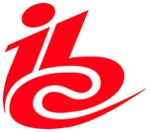IBC Looks Beyond HD

AMSTERDAM, NETHERLANDS
With a keen eye for business solutions and technologies that will allow broadcasters to stay competitive in a constantly changing market, the ranks of European, African and Asian broadcasters are also simultaneously looking closely over the U.S.'s shoulder at the stresses and successes of the looming digital transition.
To meet those needs, more than 46,000 attendees are expected to descend on Amsterdam for the 41st annual IBC Convention, which returns to the RAI Exhibition and Congress Centre, Sept. 11-16.
Often seen as an intimate alternative to its behemoth brother NAB, the IBC convention has an easygoing, unhurried vibe that belies its stance as the year's key European broadcasting event. Even the IBC conference chairman, David Crawford, who touts IBC as a forum for learning and networking, says it's mixed with the goal of "growing our businesses in a friendly, informative and fun atmosphere." (No doubt, as the handful of well-advertised happy hours, promising cool glasses of Duvel Belgian ales, certainly make for a cheerful mix.)
But at its heart, the convention is a well-organized business platform that includes a redesigned conference program format and more clearly defined and focused themes.
"[This is all] tailored to the various needs of all the delegates," Crawford said. "Whether you are looking for the latest from the research labs or a masterclass in 3D movie-making, IBC will strive to offer you something most relevant and stimulating."
NEW INTRODUCTIONS
Like last year, each of the five days of the conference will revolve around a particular theme designed to mix together tutorials, presentations, panels and workshops to more "comprehensively [tackle] a subject's issue from every angle," Crawford said.
Themes for IBC include a focus on future broadcast businesses and the ever-changing audience, the ongoing battle for bandwidth, the production and protection of content, and digital cinema.
And to kick things off on Thursday, Sept. 11, the first day's theme will touch on an issue facing all broadcasters, regardless of nationality: personalizing content for the Web to optimize the bottom line. That day's sessions, papers and tutorials will focus on quality of delivery, selection of content and the evolution of services.
One key to convergence is the creation and consumption of content across multiple devices. As such, sessions will explore how this impacts the television value chain, and what role IP has in delivering content, be it competitive or complementary to traditional broadcast television.

More than 46,000 attendees from around the world are expected to attend the 41st annual IBC in Amsterdam, Sept. 11-16. The companion slate of papers and sessions will touch on the steps necessary to deliver premium content over IP, and which delivery mechanisms will meet consumers' expectations.
Attendees will also get a close look at the impact on HD on the U.S. market, and how the fate of the terrestrial spectrum will impact broadcasting in this country. Sessions will look at the path the United States has taken, and consider whether Europe, Africa and Asia ought to follow a similar pattern.
TECHNO FIRSTS
The conference also promises to offer some technological firsts.
An interview with DreamWorks SKG CEO Jeffrey Katzenberg will be photographed with multicamera stereoscopic equipment in Los Angeles, and the images will be delivered by satellite from the West Coast to Amsterdam to showcase the cutting-edge capabilities of 3D imaging and transmission.
High definition will also play a key role as NHK of Japan, RAI of Italy and BBC of the UK will collaborate with live demonstrations of Super Hi-Vision, the ultra high-definition system that combines 7680x4320 pixel images with 22.2-channel immersive audio. In a series of demonstrations, footage shot in Japan will be mixed with live pictures from a camera in downtown London, and then compressed over MPEG-2 and delivered over fiber and satellite to Amsterdam. Likewise, a session titled "Images of Tomorrow" will debate whether there are real-world applications for this kind of cutting-edge technology, with leaders at NHK, BBC, RAI and the EBU weighing in on new temporal-resolution offerings and the capabilities of multidimensional audio.
The IBC convention also promises masterclasses, workshops, business briefings and access to a "New Technology Campus," which will allow authors of conference papers to stage live, real-world demonstrations of their technologies.
IBC has also introduced several new program offerings, including the Digital Signage Zone. With digital signage sites expected to attract advertising revenues of around $2.7 billion by 2010, an IBC panel will discuss opportunities in deploying digital signage, including advertising, brand building and corporate environment opportunities.
One of IBC's key events remains its technical papers sessions, which is the convention's bread and butter offering and the source of the show's origins.
"This is where the IBC conference started: a series of carefully peer-reviewed papers selected for both their technical innovation and topicality, to give a platform for the latest in engineering thought and practical deployment," Crawford said.
TECH ON DISPLAY
More than 1,300 exhibitors are expected to be at the show, with some introducing technologies specifically targeted to the European markets and others focusing on ubiquitous technology solutions, such as the continued interest in tapeless workflows.
"We've been particularly aware of the impact of tapeless workflows and the expansion of nonlinear services on our customers," said Herve Obed, founder and CEO of ProConsultant, a French exhibitor at this year's convention that will showcase its broadcast management solutions.
The technology has applications across most markets, he said, because of the overarching complexity of managing programming and sales across multiple platforms no matter the location.
"We've built our software so customers can streamline workflows and maximize efficiencies," he said. Broadcasters are looking for a solution that "is tailored to meet the demands of tapeless workflows, saving time and manpower while ensuring rights integrity and building new revenue opportunities."
A key focus of this year's convention continues to be the dissemination of media across multiple platforms—and finding the right tools to make that as seamless as possible. Thomson, for one, plans to showcase its broadercasting theme of technology infrastructure, designed to touch on content management, increased production automation in news and specialized sports tools.
IBC retains unique touches as well, such as the "Big Screen Experience," a large-scale digital projection system showing clips from "Journey to the Center of the Earth" in 3D and films from Bollywood. Other unique venues include the MobileZone, which will showcase the latest developments in mobile TV and 3G services, and the IPTV Zone, which will explore the impact that IPTV, video-on-demand and broadband have on the creation and delivery of content.
Get the TV Tech Newsletter
The professional video industry's #1 source for news, trends and product and tech information. Sign up below.
Susan Ashworth is the former editor of TV Technology. In addition to her work covering the broadcast television industry, she has served as editor of two housing finance magazines and written about topics as varied as education, radio, chess, music and sports. Outside of her life as a writer, she recently served as president of a local nonprofit organization supporting girls in baseball.

